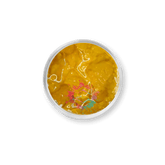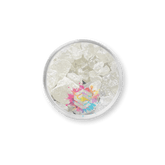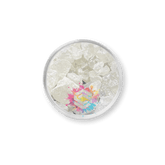Ghost Perspectives: The Hemp Generation — How Millennials & Gen Z Are Driving Change
🌿 A New Kind of Consumer
Today’s hemp customers are younger, sharper, and more socially aware than any generation before them. Recent market data shows that over 65% of U.S. hemp consumers are under 40, with Millennials leading in purchases and Gen Z rapidly catching up.
This audience isn’t just chasing trends — they’re curating lifestyles. They view hemp as part of a larger wellness and sustainability movement. Products that promote balance, authenticity, and transparency rise fastest among this group, while hype-driven or low-quality brands fade quickly.
For the Hemp Generation, ingredients matter. So do lab results, recyclable packaging, and brand ethics.
📊 Data That Defines the Movement
-
Millennials (ages 28-43): The backbone of the hemp economy. They prioritize stress relief, focus, and natural recovery — replacing alcohol and pharmaceuticals with functional hemp drinks, gummies, and tinctures.
-
Gen Z (ages 18-27): The culture drivers. Nearly 40% have tried hemp or CBD products, and 72% say brand values influence their purchases. They discover products through social media first, not ads or storefronts.
-
Shared Priority: Both groups value proof over promise. Over 80% of young hemp buyers look for QR-linked Certificates of Analysis (COAs) before purchase, showing how lab data has become part of brand storytelling.
The data paints a clear picture: quality, transparency, and community are worth more than THC percentage.
🌱 Culture, Creativity & Cannabinoids
For younger consumers, hemp isn’t a rebellion — it’s a ritual. They blend it into daily wellness: a hemp seltzer instead of a beer, a gummy for focus instead of caffeine, or THCA flower as part of mindful relaxation.
Culturally, hemp overlaps with the aesthetics of wellness, streetwear, and self-care. You’ll find it on Instagram feeds next to matcha, yoga mats, and minimalist skincare. This generation doesn’t hide hemp use — they celebrate it.
Their openness is reshaping public perception. Hemp is now part of mainstream culture, seen not as counterculture but as conscious consumption.
💼 The Business of Belief
Brands that win with Millennials and Gen Z do more than sell products — they build trust ecosystems. They use transparent lab data, eco-friendly materials, and relatable online voices.
Social platforms like TikTok, Reddit, and Instagram drive hemp discovery. Micro-influencers who share authentic experiences outperform polished campaigns. The result? A new generation of hemp marketing built on education, humor, and honesty.
The most successful hemp brands aren’t just in stores; they’re in conversations.
💡 Where the Market’s Headed
Analysts project that Gen Z and Millennial spending will account for 70% of all hemp product growth by 2028. Expect rising demand for micro-dose beverages, THCA flower transparency, and flavor innovation over raw potency.
Regulatory awareness will also grow. These consumers read the fine print, demand testing, and expect brands to advocate for hemp rights at the policy level. In short: they’re not passive buyers — they’re informed participants.
🔮 Final Thought
The Hemp Generation isn’t coming — it’s already here. Their choices are shaping how hemp looks, feels, and operates, from packaging to policy. They demand clarity, creativity, and conscience — and the brands that deliver all three will lead the next decade of hemp innovation.
👻 Ghost Perspectives brings data and culture together — decoding how a new generation is turning hemp from a product into a purpose.








![Bulk Delta 9 THCa Crumble for Sale - 96% 1 GRAM / Gorilla Glue #4 [H] Energy](http://ghostvapors.com/cdn/shop/files/Premium_Delta_9_THCA_Bulk_Crumble_for_Sale_Online_Bulk_Discount_Cannabis_Diamonds_for_Sale_Discreet_Shipping_9d4187e8-0887-4deb-b6de-6fc341d69424_165x.png?v=1754322451)



Leave a comment
Please note, comments need to be approved before they are published.